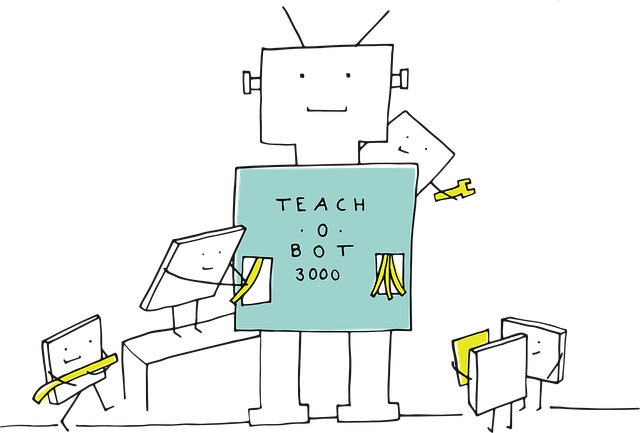Natural Language Processing (NLP) is transforming chatbot customer support by enabling machines to understand human language accurately, contextually, and with sentiment analysis. AI advancements allow chatbots to learn from interactions, handle complex queries, and adapt to linguistic nuances, improving user experiences. Specialized agencies use advanced NLP models and AI funnel systems to further revolutionize chatbot customer support, fostering efficiency and effectiveness through data-driven optimization.
In today’s digital era, chatbot customer support has become a cornerstone of effective service strategies. Natural Language Processing (NLP) is revolutionizing this field by enabling chatbots to understand and respond to user queries accurately. This article delves into the intricacies of NLP within chatbots, exploring techniques that enhance support accuracy. We discuss data analysis methods to measure and optimize performance, providing insights crucial for successful chatbot implementation and user satisfaction.
- Understanding Natural Language Processing in Chatbots
- Enhancing Customer Support Accuracy through NLP Techniques
- Measuring and Optimizing Chatbot Performance with NLP Data Analysis
Understanding Natural Language Processing in Chatbots

Natural Language Processing (NLP) is a cornerstone technology behind modern chatbot customer support systems. By enabling machines to comprehend and interpret human language, NLP allows chatbots to process customer inquiries more accurately and contextually. This involves understanding not just the words being used but also their intent and sentiment, which is crucial for providing relevant responses. With advancements in AI, chatbots can now engage in natural conversations, making them a game-changer in ecommerce automation.
An ai agent, when powered by NLP, can learn from vast amounts of customer interactions to improve its ability to handle diverse queries. This means that over time, the chatbot improves its accuracy and efficiency in resolving issues, ultimately enhancing the overall customer experience. By integrating NLP capabilities, chatbot support has evolved from a simple Q&A system to a sophisticated tool capable of handling complex customer interactions.
Enhancing Customer Support Accuracy through NLP Techniques

In today’s digital era, enhancing customer support accuracy for chatbots is paramount to delivering exceptional user experiences. Natural Language Processing (NLP) techniques play a pivotal role in achieving this goal. By leveraging NLP, chatbots can better understand and interpret customer queries, reducing misinterpretations and incorrect responses. Techniques such as sentiment analysis enable chatbots to detect the tone behind customer messages, allowing them to tailor responses accordingly. Additionally, entity recognition helps identify key information within customer inquiries, ensuring precise and contextually relevant answers.
AI automation agencies specializing in chatbot development further revolutionize chatbot customer support. They employ advanced AI funnel systems that streamline interactions, learning from each conversation to continuously improve accuracy. These ai automation agencies integrate sophisticated NLP models into chatbots, enabling them to adapt to diverse linguistic nuances and evolving customer expectations. Ultimately, this integration enhances chatbot capabilities, fostering more efficient and effective customer support.
Measuring and Optimizing Chatbot Performance with NLP Data Analysis

Measuring and optimizing chatbot performance is an iterative process that heavily relies on Natural Language Processing (NLP) data analysis. By analyzing conversational data, businesses can identify patterns in customer queries and interactions, allowing them to fine-tune chatbot responses for improved accuracy. NLP enables the identification of common issues, misinterprets, or areas where the chatbot’s understanding requires enhancement. This data-driven approach ensures that the chatbot customer support system evolves with user needs, providing more relevant and satisfying assistance over time.
AI workflow in these scenarios involves continuous learning from user interactions. Advanced AI agents can leverage machine learning algorithms to process vast amounts of conversational data, uncovering insights that lead to better decision-making. As chatbots learn from their interactions, they become more adept at understanding nuances in customer language, handling complex queries, and offering personalized support. This optimizes the entire chatbot experience, making it an invaluable tool for enhancing customer satisfaction and support efficiency.
Natural Language Processing (NLP) plays a pivotal role in enhancing chatbot customer support accuracy, transforming interactions from basic to sophisticated. By understanding user intent, leveraging context awareness, and utilizing sentiment analysis, chatbots can provide more precise and helpful responses. Measurement through NLP data analysis allows for continuous optimization, ensuring chatbots evolve with customer needs. This approach not only improves user satisfaction but also drives operational efficiency in customer support.
